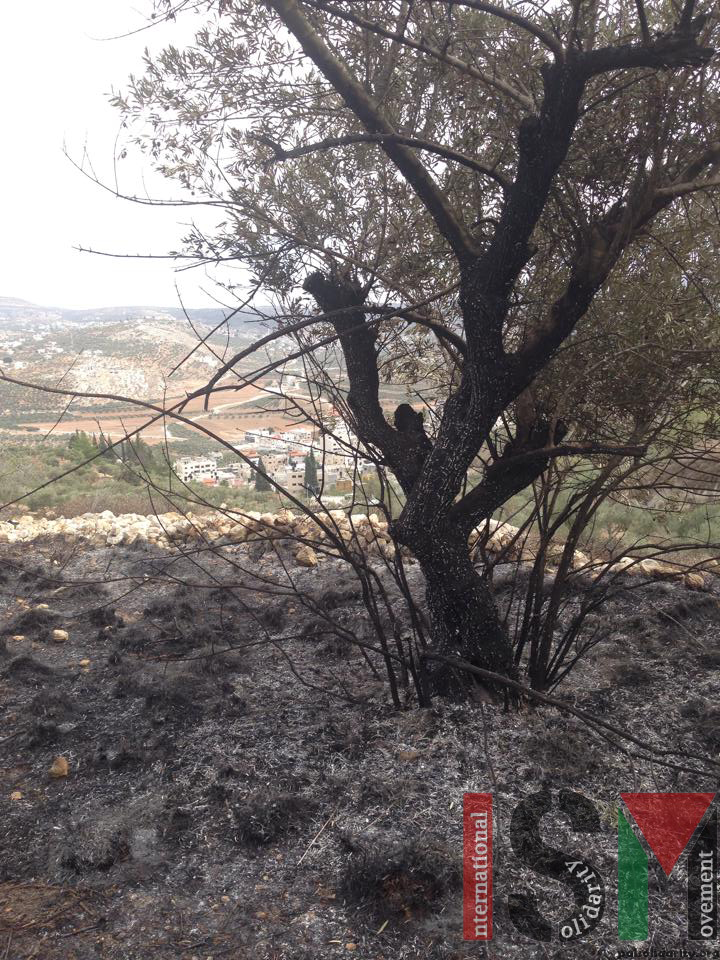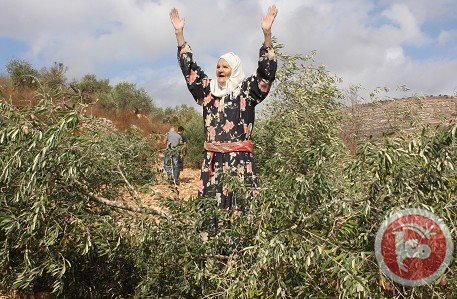Tag: Olive Trees
-
Zionist settlers burn Palestinian olive grove
22nd October 2014 | International Solidarity Movement, Nablus team | Huwwara, Occupied Palestine This morning at approximately 09:30, settlers from the illegal settlement of Yizhar set fire to a Palestinian olive field above Huwwara village, just outside of Nablus. The settlers set the land on fire from the top of the hill. People from the village…
-
Israeli settlers sabotage the olive harvest in Awarta
23rd September 2014 | International Solidarity Movement | Awarta, Occupied Palestine On the 28th of August, around 7:00 a.m., Israeli settlers from the illegal settlement of Itamar cut down and burnt more than 30 olive trees belonging to Awarta village before the harvest. For the farmers living southeast of Nablus City, the olive trees are a basic,…
-
The arrest of Burin activist Ghassan Najjar
10th September 2014 | International Solidarity Movement, Nablus team | Burin, Occupied Palestine The prominent activist from the West Bank village of Burin, and member of Solidarity Movement for Free Palestine, Ghassan Najjar, was taken by the Israeli army from his home in the early hours of the morning on the 27th August. He was transferred to…



